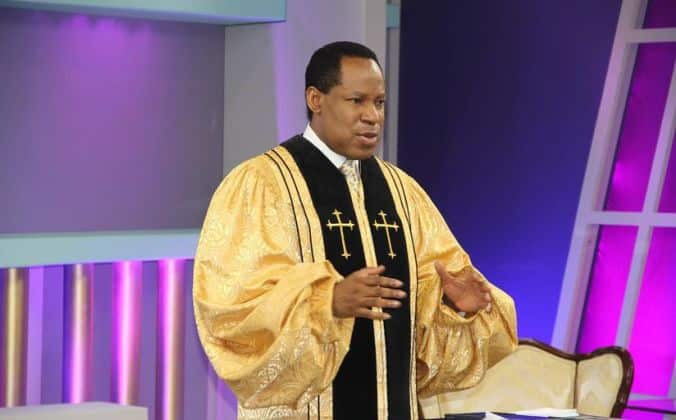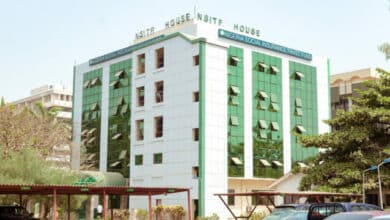Fraudulent activities exposed by UK government in Chris Oyakhilome’s Christ Embassy

A five-year long investigation of the United Kingdom (UK) branch of Christ Embassy and its board of trustees, has uncovered some fraudulent activities in the church.
The investigation carried out by UK Charity Commission, exposed the massive fraud in the mega-church under the leadership of Pastor Chris Oyakhilome.
The probe
The commission, in a report made available to the public, has it that there were serious misconduct and mismanagement in the church’s administration, inadequate recording of its decision-making processes and failure to comply with its grant-making policy.
The commission had launched a probe into the church’s UK-branch finances, to investigate issues ranging from transactions between the church and “partner organisations”, administration; governance and management of the charity; financial controls and management of the charity and if the trustees had complied with their responsibilities under the charity law.
Uncovered fraud
According to the commission, the church’s board of trustees carried out a wide range of fraudulent practices, and between 2009 and 2011, Christ Embassy paid substantial grants to organisations classified as “partner organisation”.
As stated in the report, the church’s account showed grants amounting to £1,281,666 which were paid to Loveworld Television Ministry; £118,995 to Healing School, £186,616 to International School of Ministry, £10,000 to Christ Embassy Canada, £10,566 to Christ Embassy France, £37,216 to IPPC Conference and £77,266 to Rhapsody of Realities.
The UK inquiry also found out that the church allowed Loveworld Limited to make use of its property valued at £1.8 million from 2006 to 2012 for free.
When summoned, the trustees said Loveworld had only occupied a “small part of the premises”, on an informal basis, adding that the arrangement had been formalised since 2012 and the company was charged £75,000 per year for use of the property.
Contrary to the church’s defense, the inquiry considered that the level of rent indicates that Loveworld Limited occupied a substantial proportion of the building.
“This indicates that the trustees failed to act in the charity’s best interests or with reasonable care and skill in terms of their decision-making and in the negotiation of the arrangements with Loveworld Limited and is not seeking appropriate advice regarding formalising occupation of premises by the company,” it said.
Management misconduct
After examining the church’s financial records, the Interim Manager (IM) found no evidence of compliance with the church’s grant-making policy in the documents examined.
“Documents examined showed a lack of records and receipts to account for grants made and there appeared to be little consideration given to whether the receiving parties had expended grants appropriately and for intended purposes, as was required by the policy.
“This demonstrates failure to comply with its grant-making policy and inadequate recording of decision making by the trustees which is misconduct and/or mismanagement in the administration of the charity,” the report read.
Suspicious mode of operating bank accounts
Cash collection and payment recording processes were not uniform across the charity, as nine bank accounts hold funds belonging to Christ Embassy, Nigeria which is a separate company to the church.
According to the UK government, no evidence was found to suggest that any of the banking institutions were aware that they were holding funds controlled by Christ Embassy Nigeria.
The report read further, “In addition, the accounts were not named in such a way as would indicate the funds are controlled from Nigeria: for example, two of the active accounts are named Christ Embassy East London.
“The inquiry, not being satisfied that the funds held in these accounts were owned by Christ Embassy Nigeria, exercised legal powers and issued orders dated 8 august 2014, under section 76(3)(d) of the Act, freezing six of these nine bank accounts, protecting funds to a value of £615,420.
“In the absence of clear evidence to support the trustees’ position, the Inquiry concluded that funds held in the accounts belonged to the charity and these accounts remained frozen until the order was revoked on 24 August 2016.
“This demonstrates the trustees’ failure to deal with the bank accounts appropriately and their lack of understanding of financial management and the importance of clearly identifying the charity’s property and/or assets held on behalf of another entity and is mismanagement and/or misconduct in the administration and governance of the charity by the trustees.”
Non-compliance with tax obligations
The trustees, in the report, were said to have failed to submit the church’s 2010-11 and 2012-13 self-assessment tax returns on time, an action that has attracted penalties.
The report added, “The IM established that the charity had failed to maintain sufficient records or processes to show that expenditure by employees had not been an employee benefit and therefore subject to tax.
“Sufficient records to show that charity vehicles were being used solely for charitable purposes and not used by trustees/employees for private use; sufficient records to support the charity’s claim to Gift Aid and to demonstrate the expenditure was in fact charitable.
“The interim manager agreed to pay £250,000 to settle these violations with Her Majesty’s Revenue and Customs (HMRC).”
Undisclosed assets
Three UK properties, according to the uncovered investigation, were not disclosed to the commission by the trustees.
The trustees reportedly said despite the legal title of the properties being vested in the name of two of the church’s trustees, the properties “were acquired on behalf of, and held in trust for, Christ Embassy Nigeria”.
But the Inquiry noted that “the Land Registry entries in respect of the three properties made no reference to the beneficial owner being Christ Embassy Nigeria and documentation supplied by the trustees provided no evidence to support their assertions.”
Inadequate Insurance
Christ Embassy in the UK did not take proper insurance to protect the church’s assets and against claims for accidental damage to properties/compensation for accidental injury to third parties.
According to the Inquiry, the failings of trustees to act appropriately left the charity open to financial and reputational risk and losses, as well as to the risk of litigation.








